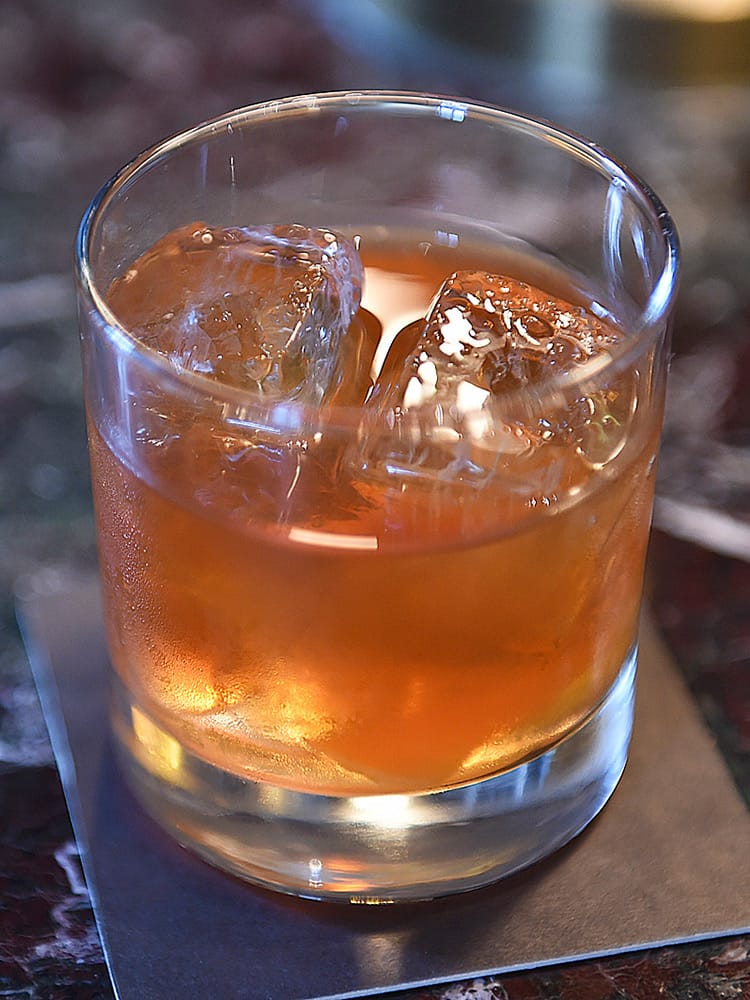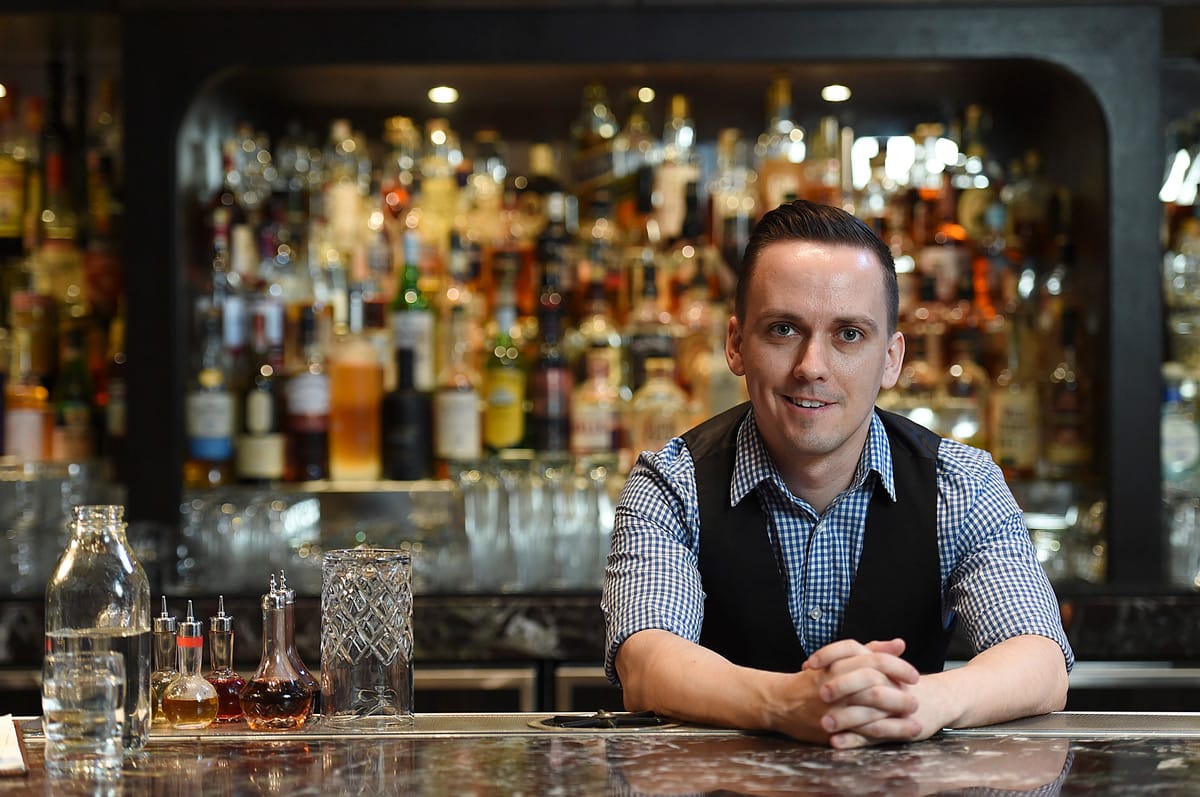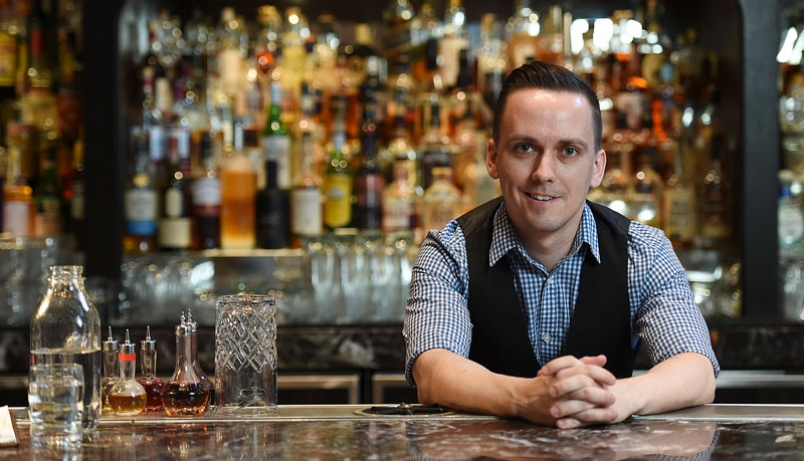
Meet Rhett Williams, a born and raised Vancouverite of the Northern variety, whose boozy beginnings were not actually so wet; with a background in music and years of studying chemistry in university, Rhett’s entry into the realm of spirits started with words before wood, as he found himself writing about cocktail history before his career behind the bar even started. He has since established himself as a staple in the industry, through years of working under the best and up to the top. His most recent venture as general manager at Dark Manor, which he helped open last year, has recently shut the doors. And what an adventure it was. These are the champions we need to see more of in Vancouver; those brave enough to take risks and open independent projects in a city of chains. For these lionhearts, when it doesn’t work out, they move on to the next project, slowly shaping the culture of Vancouver’s bar scene. Keep your eyes on Rhett, as his endless spirit (and dance moves) will without doubt take us somewhere new and exciting.
Laura: OK. Hi Rhett! It’s been a wild year for you. Tell me about what is going on in your world these days?
Rhett: Oh hi! Big life changes for me! I’ve never had so many transitions happening at once—personally and professionally. Excellent opportunity to make some positive changes and create healthy new habits. I’m excited to see where life and I take myself…
L: Now, you’ve had wet fingers behind the bars of some pretty awesome spots in Vancouver, from Pourhouse to Nightingale to Shameful Tiki to opening Dark Manor (which sadly just closed.) How did each spot contribute to your experience with working behind a bar?
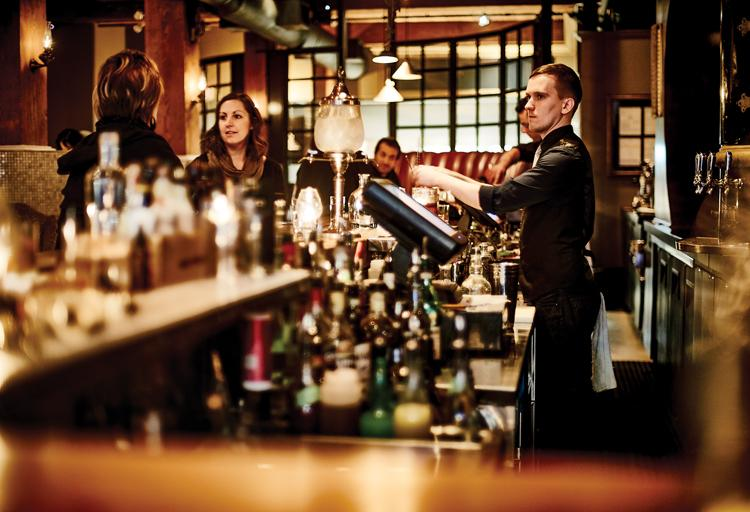
R: I was more than happy to start my life over again at the proverbial bottom of the totem pole at Pourhouse, an environment that encapsulated my romance with spirits and cocktails at the time. I had much of the knowledge, but this is where I learned the craft, so to speak. My mentors there, especially Christopher Flett and Brian Grant, gave me the big picture of hospitality: service, a commitment to quality, respect for your peers and your guests, and hard work. I learned most of what I know about this industry from my four years there, and I am ever thankful I had the honour of managing the bar for half that time amongst such great and respected company. The Pourhouse service-well on a weekend night is also where I got my chops and grace under pressure.
Nightingale was a wonderful experience in opening a restaurant, and in being more connected to the business side of things. Working with Cooper Tardivel and Alex Black was an honour, and I’ve never worked with so many friendly and lovely staff. I was learning about food and wine every day. It also challenged how much I had romanticized bartending; it was a great lesson in humility.
The Shameful Tiki Room is a very, very special place—such a unique and challenging bartending experience. It’s a testament to their creativity and insanity that it’s a functioning bar at all, haha. I’m not sure anything can throw me after having made that many drinks that are that complicated—alone—on that bar while that room is full. The prep was at times unreal, but Shea Hogan’s systems were inspiring.
The Dark Manor Inn was also a very unique experience. I had opened a restaurant before, but not with such a small team and with so much responsibility and control—and while still managing another business. This project definitely made me more aware of my limitations and stressed the importance of time and sanity management. Above all else, I’m honoured I was able to assemble such an incredible bar team. My fondest memory from that journey was designing the menu with Jason Earle, Jared Fontaine, and Rod Redford—the most collaborative process I’ve been a part of so far.
L: It was a solid effort getting Dark Manor off the ground, and we were all sad to see it close. I have much admiration for people who get things off the ground in this city, and often, just because something closes, it doesn’t mean it shouldn’t have opened. What was the most surprising part of your experience with Dark Manor? Anything in hindsight that you would have done differently?
R: Above all else the biggest challenge for us was location. I don’t think any of us anticipated the severity of this challenge, and given the option or the control, a different neighborhood would be the difference.
I’m proud of everything else we accomplished there. I think we created an amazing guest experience, and Rod Moore built one of the coolest rooms in town—by hand. I’m sad more people didn’t get to see it!
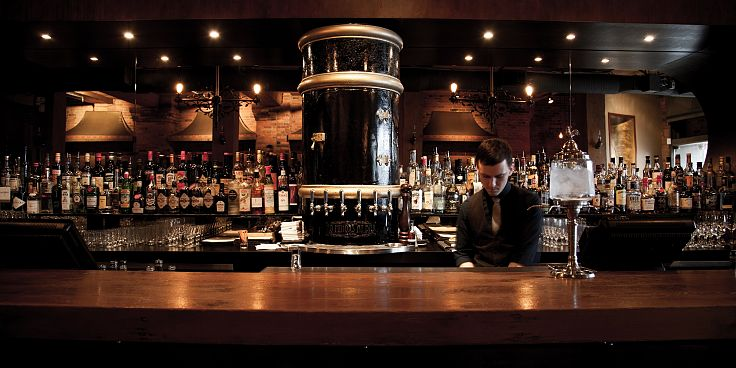
L: How would you describe the Vancouver bar scene? What makes it different from other cities that you’ve travelled to, or worked in?
R: I always felt our scene was inherently extra creative from the outset, mostly due to the lack of availability of so many products. When I started, I had to have my brother smuggle things up from the States like maraschino, violette, St. Germain, even American rye. Because of this we were forced to start thinking outside the box, recreate ingredients from scratch, and look to a more culinary approach. On that note, I think we also have had a consistently high level of service by virtue of almost every bar program being attached to great food programs—originally for licensing purposes, but the two just became integrated.
L: Do you think it’s hard for new bartenders to break into the scene in Vancouver? Any sage advice on getting started?
R: At the moment, I actually don’t. It seems we have more bar positions than bartenders at this point! However, finding the right one with an opportunity to learn and grow—this is definitely not easy. The importance of hard work, a drive to always be learning, and a sense of humility can’t be overstated.
My advice is to look for any position in programs you are excited about run by people from whom you want to learn. Be an apprentice or bar back at your favourite bar/restaurant, take the slow shifts, do what it takes to put yourself into an environment with the highest possible expectations and learn everything you possibly can. Read, watch, and ask questions. If you aren’t challenged, you’ll never evolve. Never get too comfortable.
L: I recently saw you shaking up some fancy cocktails at the Deighton Cup in the Rebel Yell tent. What’s the main difference between working behind wood, and working a tent at an event like Deighton Cup?
R: The main difference is that the attendees are not my guests but rather guests of the event. I still have some level of responsibility for their experience, but it’s much more of a smile-and-pump-the-drinks-out vibe. It’s definitely fun to work under changing conditions and environments and with new and different people.
L: Do you ever get the itch to compete in cocktail competitions?
R: Never. It’s a skill set I have not developed. They’re always fun to watch, but I have no desire to compete at this point. I’m probably the least competitive person you’ll meet anyway!
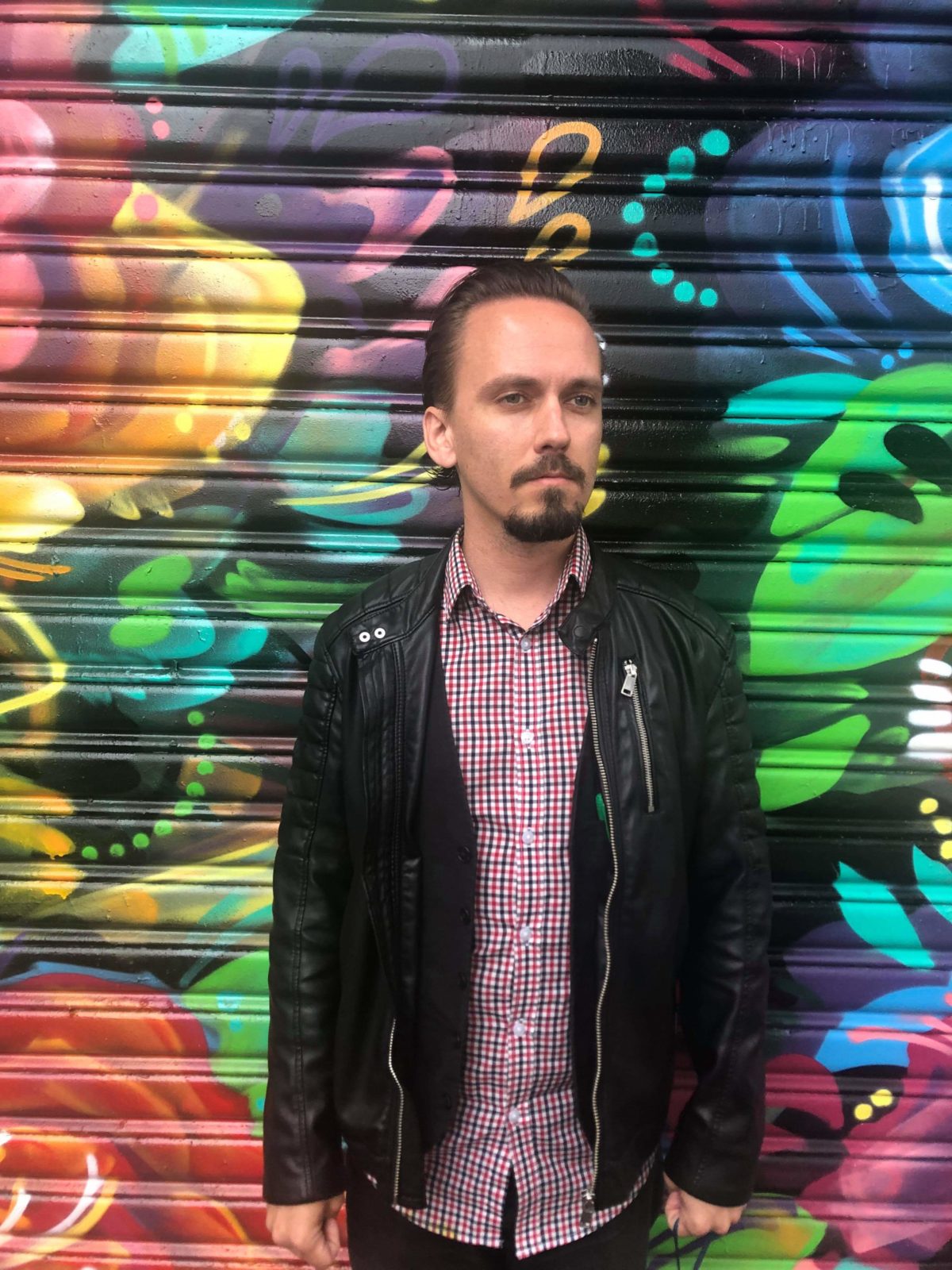
L: If you weren’t in Vancouver, where would you be?
R: San Francisco playing in a band with my brother, or southern Spain stuffing my face with Manchego.
L: The word Manchego is like Pavlov’s bell for me! Ha!
Okay, so bartending has a pretty wet and wild reputation as a job, particularly for those who have not worked in the industry. What is a misconception people have about bartending?
R: That it’s wet and wild—I have been fortunate to work in quite professional environments! Truly though, I feel the average person is unaware of how much sweat, blood, time, and passion this job demands.
L: Amen to that. And speaking of hard earned reputations, what would you say is the most underrated bar, or cocktail list, in this city?
R: I think “underrated” implies it is generally rated low, which is not true, but I always felt like Crowbar had a creative and super fun list and wasn’t talked about enough.
L: What’s your guilty pleasure drink?
R: A pitcher of slushy Margarita or a Bellini (also slushy, obvs.)
L: Yes! You and me, Cactus Club, ASAP! How about the most memorable drink you’ve ever had?
R: That’s a tough one, but the first that comes to mind is drinking a Sazerac at Arnaud’s French 75 in New Orleans and Chris Hannah asks if I want to enjoy it while walking through the museum upstairs.
L: That sounds like a fun night! What keeps you sane and balanced outside of work though?
R: The hours have always been one of the biggest challenges for me in this industry, and I feel this is an ongoing process. Exercise, yoga, fresh air, and taking some time every day for solitude.
L: …and Manchego cheese!

SHOTGUN ANSWERS
Dog or cat? Dog
Negroni or Boulevardier? Negroni
Most overhyped bar trend?
Most despised bar term? Mixologist, cocktologist, cocktailian – any attempt at separating ourselves from the word “bartender.”
Most underutilized spirit? Eau de vie
First drink you ever had? Grandmummie’s gin & tonic 🙂
Pinot or Cabernet? Pinot
Go-to hangover cure? Carbs and electrolytes
High school prom song? Oh gosh I don’t remember that, but the first time I ever danced with a girl was to Celine Dion’s “My Heart Will Go On”
THC or CBD? CBD
Thanks for your time, Rhett!

